Mesotherapy For Hair – Procedure, Results, Side Effects, And More
Understand the nuances of this hair fall treatment option to know what to expect.
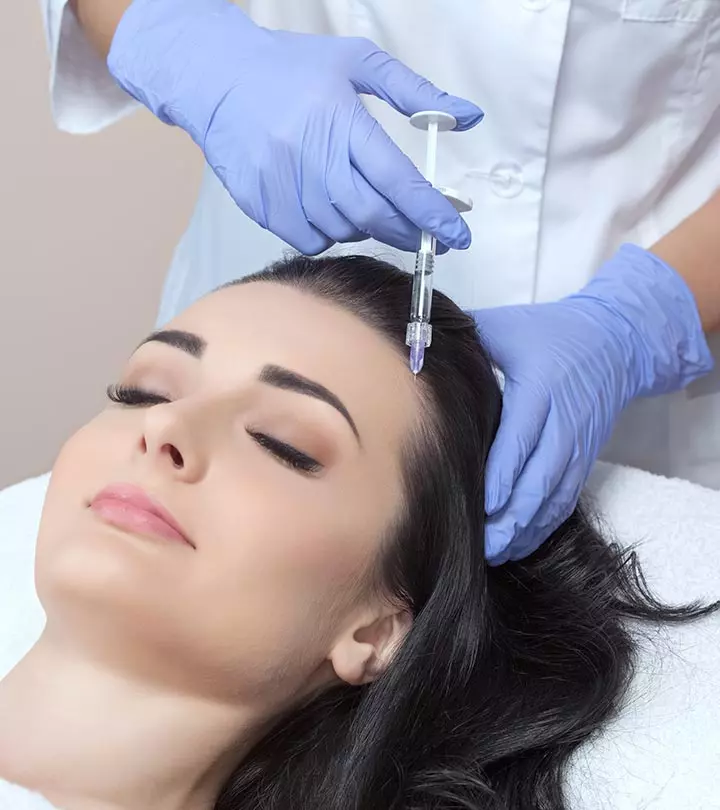
Image: Shutterstock
If you have ever had hair fall or serious hair loss, chances are you have been recommended mesotherapy at some point. But does mesotherapy help the hair growth cycle? Mesotherapy is an excellent treatment option for people experiencing hair loss. This procedure is non-invasive and painless and involves injecting stem cell serum or platelet-rich plasma into the scalp. Continue reading to learn more about the procedure, cost, and adverse reactions.
In This Article
What Is Mesotherapy For Hair?
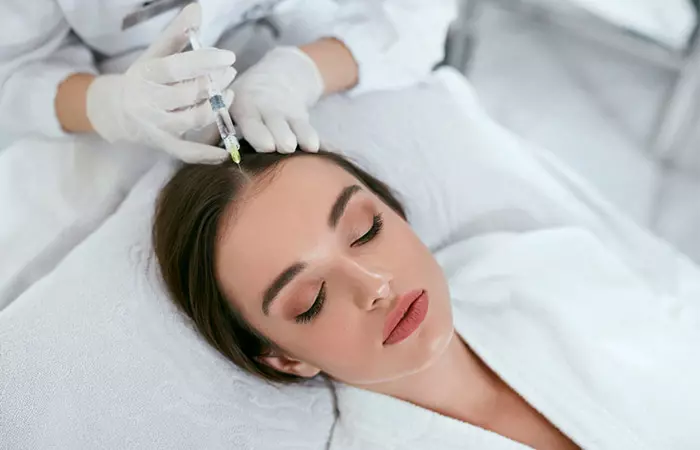
Hair mesotherapy is also known as mesoplasty or mesohair. It involves injecting medications with anti-inflammatory mediums such as hyaluronic acid directly into the scalp. This technique acts on the epidermis, dermal connective tissue, blood circulation, oxygenation, and the immune and neurosensory systemsi A part of the nervous system responsible for processing sensory activities like hearing, vision, taste, and smell. .
Mesotherapy may help in improving certain forms of alopecia like telogen effluviumi A reversible condition in which hair loss occurs due to stress or traumatic event and may continue for 2-3 months. , androgenetic alopeciai A common form of permanent hair loss from the scalp due to androgens (the male sex hormones). ,alopecia areatai An autoimmune disorder where the immune system attacks hair follicles and causes hair loss in patches. , and stress alopecia. However, there is very little scientific evidence to show that this technique can eliminate hair loss.
The objective of this treatment is to restore and increase microcirculation in the scalp, provide nutrients, aid in hair follicle stimulation, and promote hair regrowth. The following chemicals and ingredients may stimulate hair growth and encourage new hair production (1), (2), (3):
- Biotin
- Buflomedil
- Dexenol
- Dutasteride
- Finasteride
- Minoxidil
- Organic silicium
- Vitamins
- Acetyl tetrapetide-3
- Biochanin-A
- PRP
- Nano peptides
- Cocktails
The materials used for mesotherapy can be classified as – principal/major ingredients (that are backed by scientific evidence and approved by the FDA) and complementary/minor ingredients (that claim to improve the existing condition). An effective cocktail contains at least two to three principal agents.
There is a lack of scientific research to establish which cocktail and application scheme are the most effective in hair mesotherapy to aid in hair strengthening and growth. The amounts of vitamins, enzymes, hormones, pharmaceuticals, homeopathic agents, natural plant extracts, and bioactive substances used in these injections depend on the dermatologist’s practice and experience.
Key Takeaways
- Mesotherapy addresses hair loss by directly injecting the necessary amount of medicines into the scalp.
- It helps boost circulation to the scalp and provides stimulation for new hair growth.
- The procedure requires about eight sessions of half an hour each, where you may notice visible results after the fifth session.
- However, it may lead to side effects like scarring or scalp abscesses.
History Of Mesotherapy
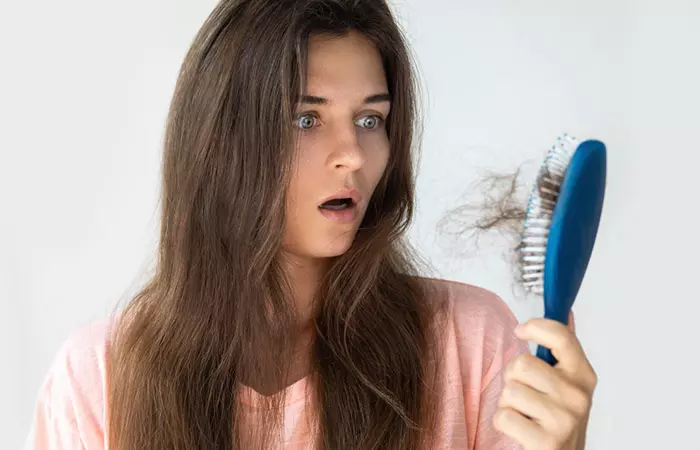
The term ‘mesotherapy’ was first coined by Dr. Michel Pistor in 1958. He used this as a pain-relieving technique to treat conditions in rheumatology, sports, traumatology, infectious diseases, and vascular diseases. Dr. Lionel Bissoon learned the technique in France and later popularized it in the US. Its cosmetic applications, particularly for the removal of fat and cellulite and treating hair loss, have recently received worldwide attention.
 Did You Know?
Did You Know?How Does Mesotherapy For Hair Loss Work?
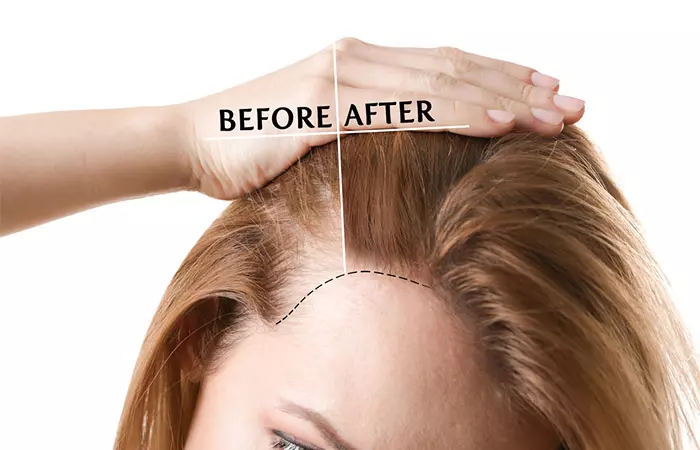
Mesotherapy is a non-invasive and non-surgical cosmetic medicine treatment used to restore volume and luster to thinning hair. It involves inserting micro-injections of pharmaceutical agents, amino acids, vitamins, and others into the epidermal layer of the skin. This stimulates the mesoderm layeri The primary germ layer that develops into connective tissues in the body and the skin layers. and encourages hair growth and promotes new hair production. It is a rapidly growing treatment in advanced hair care.
The technique is based on the fact that most hair loss problems occur due to hormone issues around the hair follicles (like DHT), lack of proper nutrients that aid hair health, and reduced blood circulation to the scalp.
The mesotherapy solution that is injected into the scalp contains a combination of specific chemicals, vitamins, co-enzymes, and amino acids that are tailored based on the patient’s requirements. It can help in collagen synthesis, cell proliferation, and improved hair density. Mesotherapy encourages the growth of new and healthy hair strands. Both men and women can benefit from this technique.
What Is The Process Of Mesotherapy For Hair?
Mesotherapy for hair is performed in two ways:
1. Chemical Mesotherapy
Ingredients like buflomedil, minoxidil, finasteride, dutasteride, biotin, vitamins, and organic silicium are injected into the skin’s mesoderm layer. These ingredients work together to stimulate natural hair growth by improving blood circulation, neutralizing excess DHT, reducing inflammation, and stimulating collagen production to stop hair loss.
2. Mechanical Mesotherapy
The doctor creates micro-perforations in the affected area, which induces hair growth. This motion triggers collagen and elastin production. These help in the formation of new tissues in your hair. During this process, there is no damage to the existing collagen.
Before starting mesotherapy, it is vital to have an in-depth consultation with a qualified dermatologist. The doctor will carefully examine your hair loss patterns and determine if mesotherapy suits you. They will explain potential risks and work with you to create a treatment plan for your unique needs, helping you understand which mesotherapy method suits you.
 Quick Tip
Quick TipHow Long Does The Treatment Last?
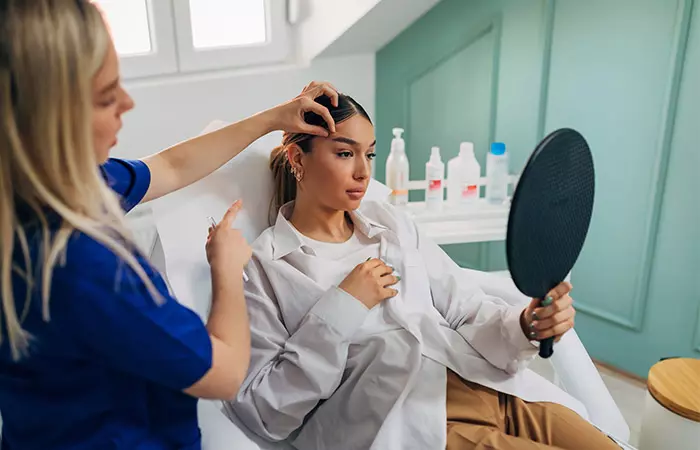
The duration of the treatment depends on the individual, but on average, you will need the therapy for about four months, once a week.
The treatment usually spans eight sessions, one every week, for half an hour each. One must be patient and composed while undergoing this treatment as visible results are only observed after the fifth session.
Of course, once your body starts responding to the treatment, the duration and frequency of the treatment will be reduced.
What Are The Side Effects Of Mesotherapy?
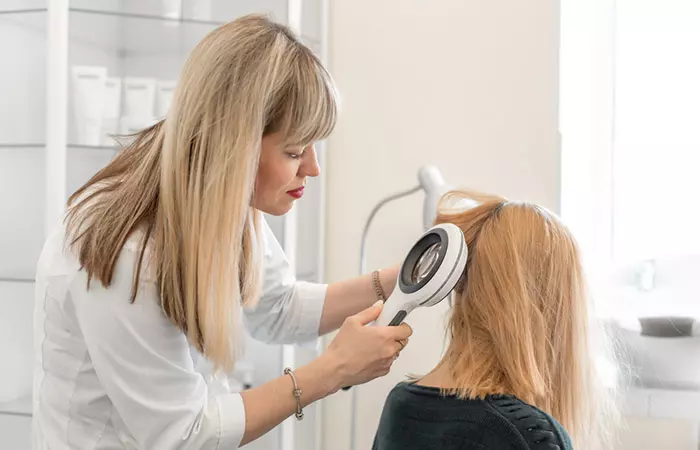
A study was done to demonstrate the late-onset effects of mesotherapy for alopecia. Three patients with androgenetic alopecia experienced hair loss after previously uneventful mesotherapy sessions for a year. The study concludes that mesotherapy for androgenetic alopecia may induce hair loss and inflamed scar tissues (4).
In another study, two patients developed patchy alopecia after undergoing mesotherapy for the treatment of androgenetic alopecia (5).
Mesotherapy may also cause acute complications like scalp abscesses (6). Some people may also experience bruising, edema, headache, itching, and pain (7).
Who Should Not Go For Mesotherapy For Hair Loss?
Do not opt for mesotherapy if you (7):
- are allergic to any of the substances used in mesotherapy
- have diabetes, liver, kidney, or cardiac issues
- are pregnant or lactating
- are on anticoagulants
- have an infection or lesion in the affected area.
How Much Does Mesotherapy Cost?
The cost of mesotherapy depends on the type of treatment and the number of sessions. A single session costs anywhere between $250 and $600. As mesotherapy is a non-invasive cosmetic technique and does not involve surgery, insurance companies usually don’t cover the cost.
Care And Maintenance
This treatment may prevent the need for hair transplant surgeries and other expensive and painful alternatives. However, for optimum results, the patient should maintain a healthy diet, eliminate the intake of junk food and toxins, and follow a regular fitness regimen.
Some of the aftercare tips include:
- Stay out of direct sunlight for at least 48 hours after your treatment to protect your scalp.
- When you wash your hair for the first time post-treatment, stick to a mild shampoo to be gentle on your scalp.
- If you need to be outside, consider using scalp sunscreen for extra protection.
By following these steps, you can rest assured that you are making the most of your treatment and reducing possible side effects.
Mesotherapy is a popular treatment for promoting hair growth. But how is it better than other treatments like PRP (platelet-rich plasma therapy)? Scroll down to find out.
Mesotherapy Vs. PRP
Mesotherapy and Platelet-Rich Plasma (PRP) therapy are both popular treatments for hair restoration. Mesotherapy involves injecting a mixture of vitamins, minerals, and other nutrients into the scalp to stimulate hair growth. PRP, on the other hand, utilizes the patient’s own platelets to promote hair follicle health and regrowth.
While mesotherapy may provide quicker results and is suitable for a broader range of hair loss types, PRP is often preferred due to its approach to utilizing the body’s resources. PRP treatment for hair loss can also be less invasive and comes with fewer side effects. The choice between the two treatments depends on individual preferences, the extent of hair loss, and desired outcomes.
Infographic: 6 Reasons Mesotherapy Is Not Suitable For You
Mesotherapy is an excellent alternative to hair loss treatments that require injecting stem cells or platelet-rich plasma into the scalp. Although it is a non-invasive method and is the preferred choice of those who are not open to surgery, it is not suitable for all. Check out the infographic below to know more.
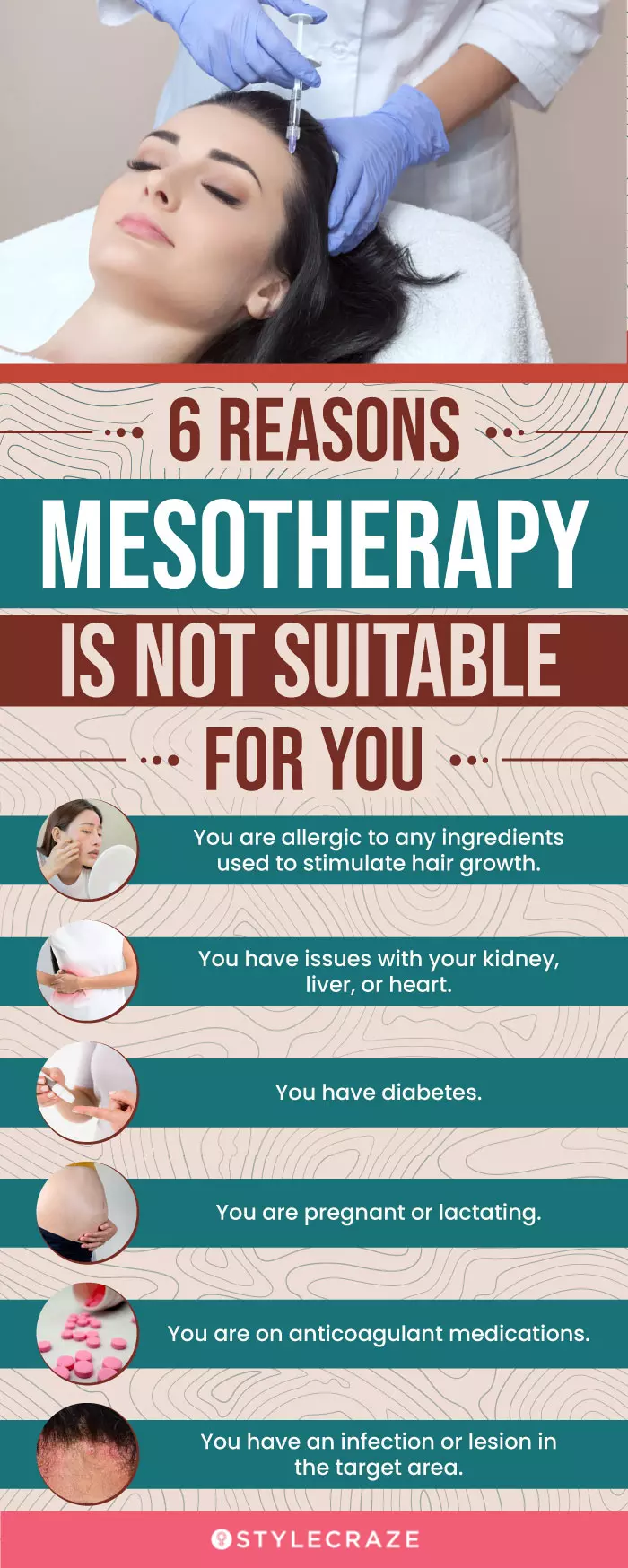
Illustration: StyleCraze Design Team
Hair mesotherapy is a non-surgical process involving injecting medicines into the scalp to boost hair growth. Using mesotherapy for hair growth helps restore hair by increasing microcirculation on the scalp, slowing down the follicle shrinkage, and providing the essential nutrients. It is a relatively painless process and has become popular in recent years. The cost of the treatment depends on the type of treatment and the number of sessions. However, it isn’t ideal for everyone. People with allergies to its ingredients, certain health conditions, and those who are pregnant or breastfeeding should avoid it. Always share your medical history with your doctor to see if it is right for you. Consult a trusted and experienced medical professional to know more about the treatment.
Frequently Asked Questions
Is mesotherapy for hair painful?
No, if done properly, it is one of the least painful hair regenerative methods out there.
How soon can I expect to see results after the first treatment?
The results of any hair restoration treatment always vary between individuals, but in most cases, it will take 2–3 months before results are noticeable.
Is mesotherapy for hair permanent?
Unfortunately, the results do not last long in mesotherapy for hair.
How is PRP different from mesotherapy?
PRP is a more complex procedure than mesotherapy. In PRP, blood is withdrawn from the patient and checked for analysis. After a complicated series of processes, clear blood plasma and concentrated rich plasma are injected into the person’s scalp to stimulate hair growth.
Can I wash my hair after mesotherapy?
No. It is recommended to wash your hair 24 hours mesotherapy.
Can I exercise after hair mesotherapy?
It is recommended to avoid vigorous exercise for 48 hours after getting hair mesotherapy done. This is because the sweat from your scalp may hinder the treatment.
Can I drink coffee after mesotherapy?
No. It is recommended to avoid coffee, alcohol, and smoking before and after mesotherapy to achieve the best results.
References
Articles on StyleCraze are backed by verified information from peer-reviewed and academic research papers, reputed organizations, research institutions, and medical associations to ensure accuracy and relevance. Read our editorial policy to learn more.
- Hair Mesotherapy, Hair:Therapy & Transplantation, Zekayi Kutlubay and Özge Karakuş, Cerrahpaşa Medical Faculty, Department of Dermatology, Istanbul University, Istanbul, Turkey.
https://www.longdom.org/open-access/hair-mesotherapy-2167-0951.1000e102.pdf - Mesotherapy for Hair Loss-is it Useful? Review of Literature, Archives of Dermatology and Skin Care, ResearchGate.
https://www.researchgate.net/publication/325755148_mesotherapy_for_hair_loss-_is_it_useful_review_of_literature - Evidence‐based (S3) guideline for the treatment of androgenetic alopecia in women and in men, Journal of the European Academy of Dermatology and Venerology, Wiley Online Library.
https://onlinelibrary.wiley.com/doi/full/10.1111/jdv.14624 - Hair loss at injection sites of mesotherapy for alopecia. Journal of Cosmetic Dermatology, US National Library of Medicine, National Institutes of Health.
https://pubmed.ncbi.nlm.nih.gov/28160387/ - Alopecia secondary to mesotherapy. Journal of the American Academy of Dermatology, US National Library of Medicine, National Institutes of Health.
https://pubmed.ncbi.nlm.nih.gov/19577328/?dopt=Abstract - Multifocal scalp abscess with subcutaneous fat necrosis and scarring alopecia as a complication of scalp mesotherapy. Journal of Drugs in Dermatology, US National Library of Medicine, National Institutes of Health.
https://pubmed.ncbi.nlm.nih.gov/18246702/?dopt=Abstract - Cosmetic Procedures in the Treatment of Alopecia, IntechOpen.
https://www.intechopen.com/chapters/54160
Read full bio of Dr. Priya Gill
Read full bio of Arshiya Syeda
Read full bio of Eshna Das
Read full bio of Swathi E





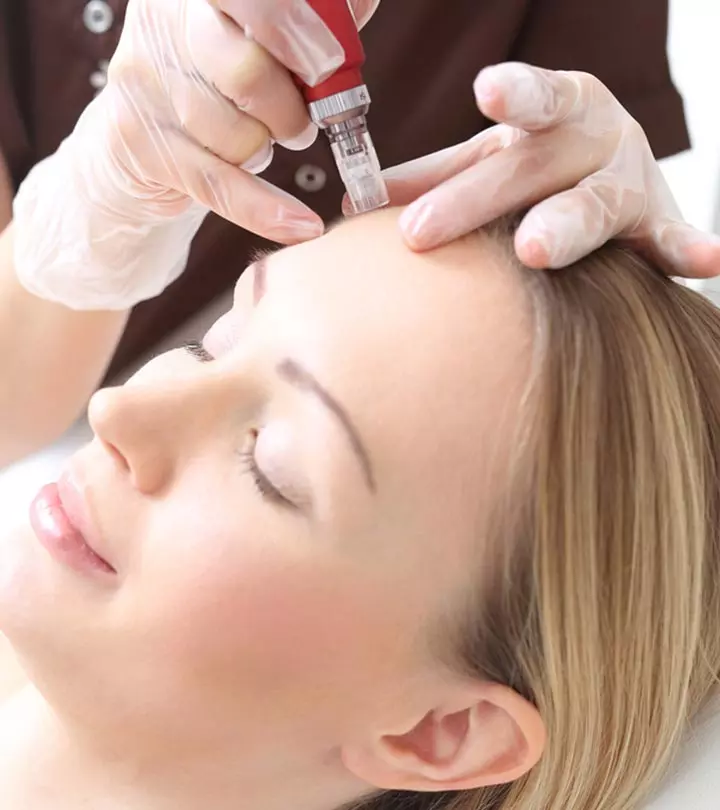
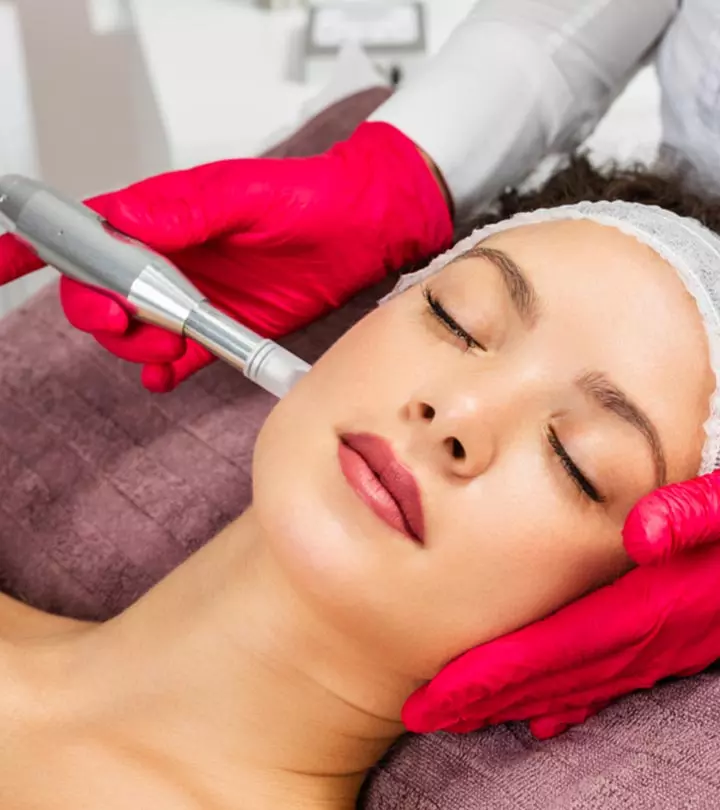
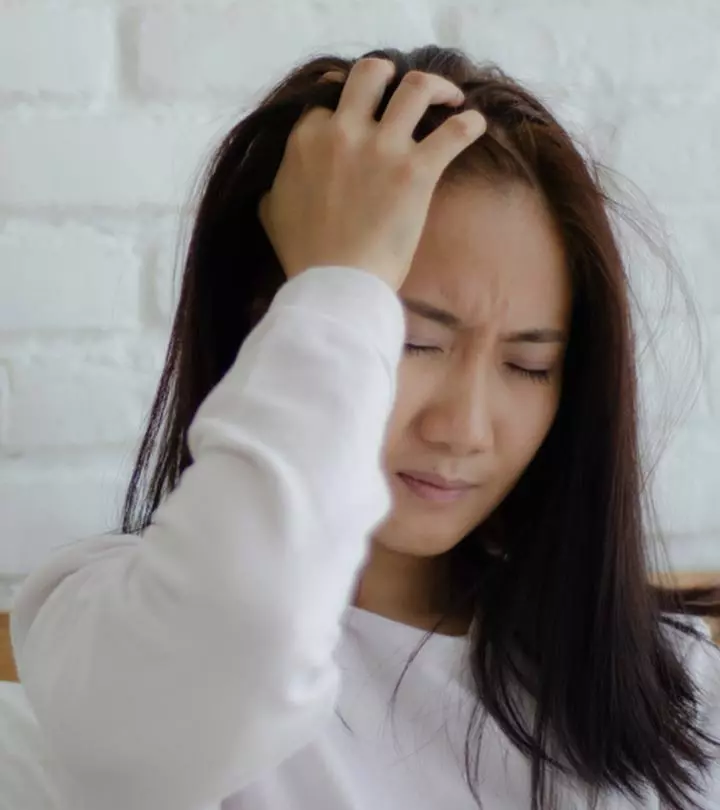
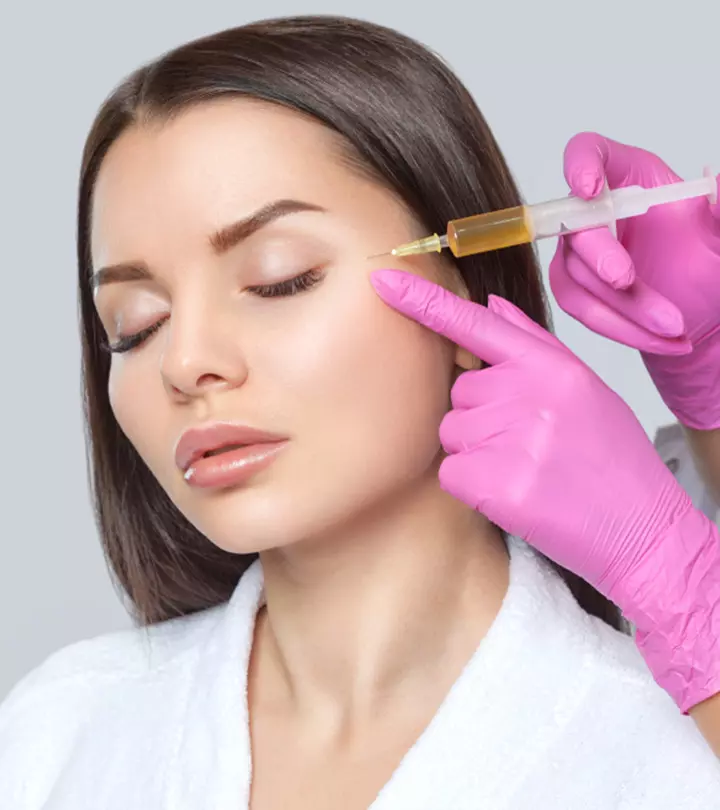

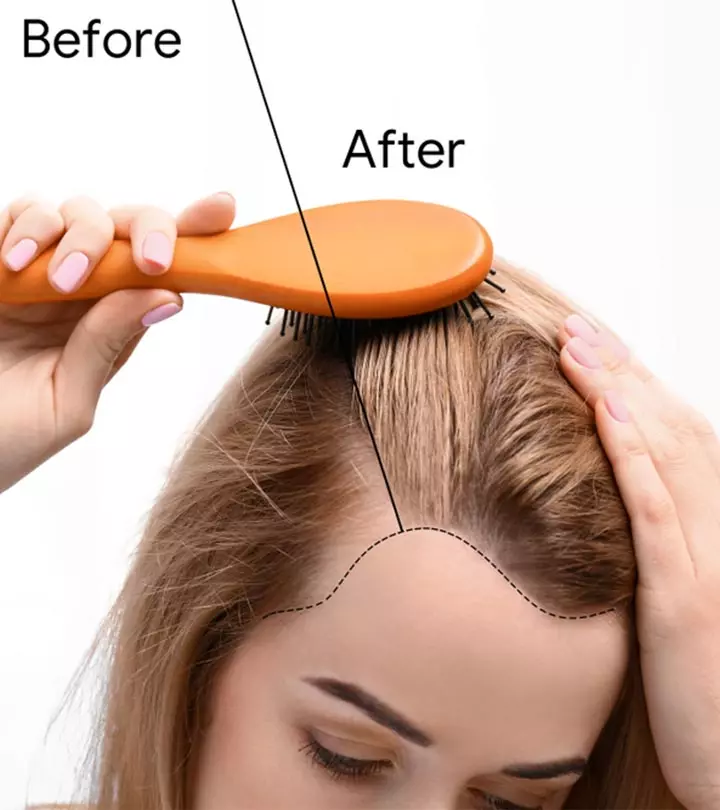
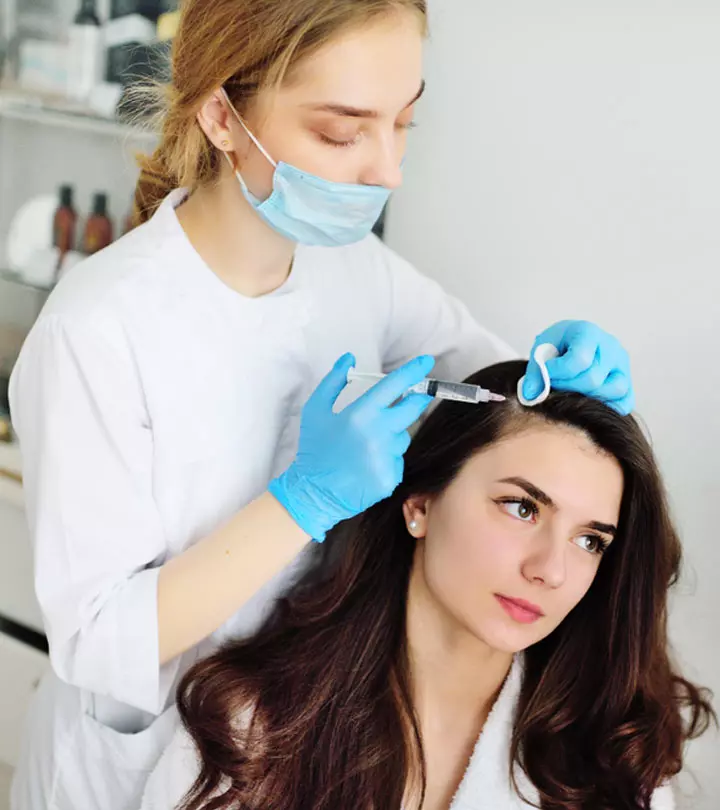

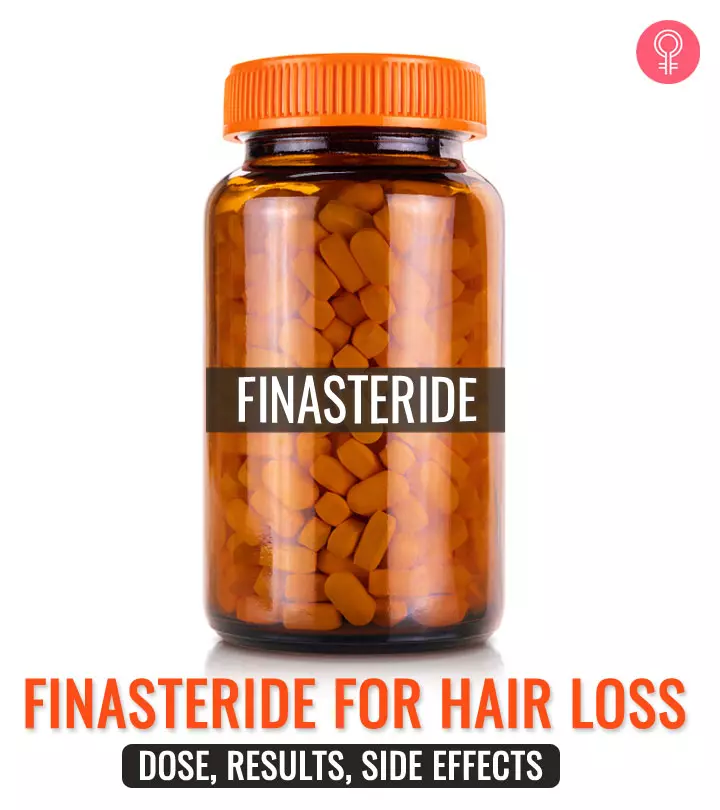
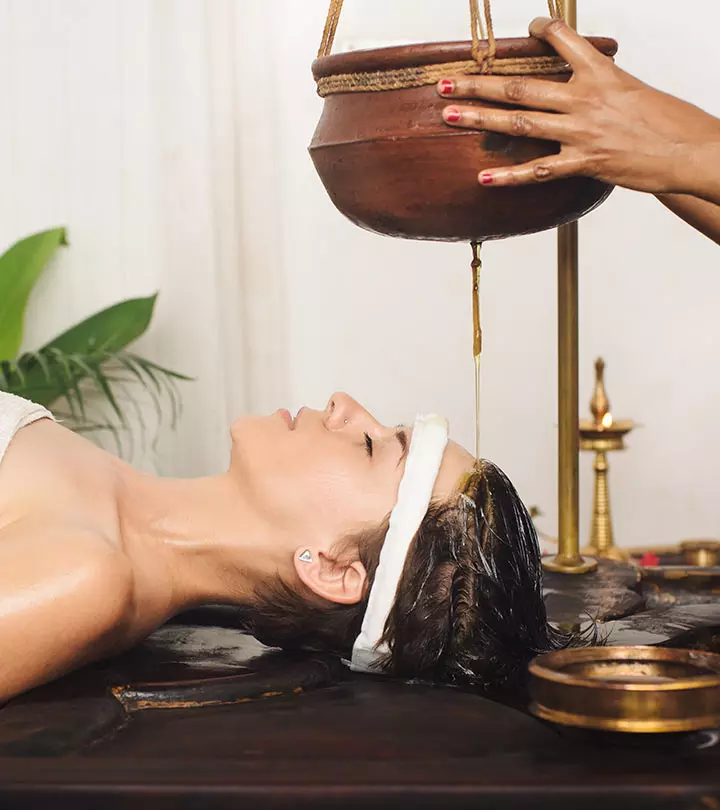


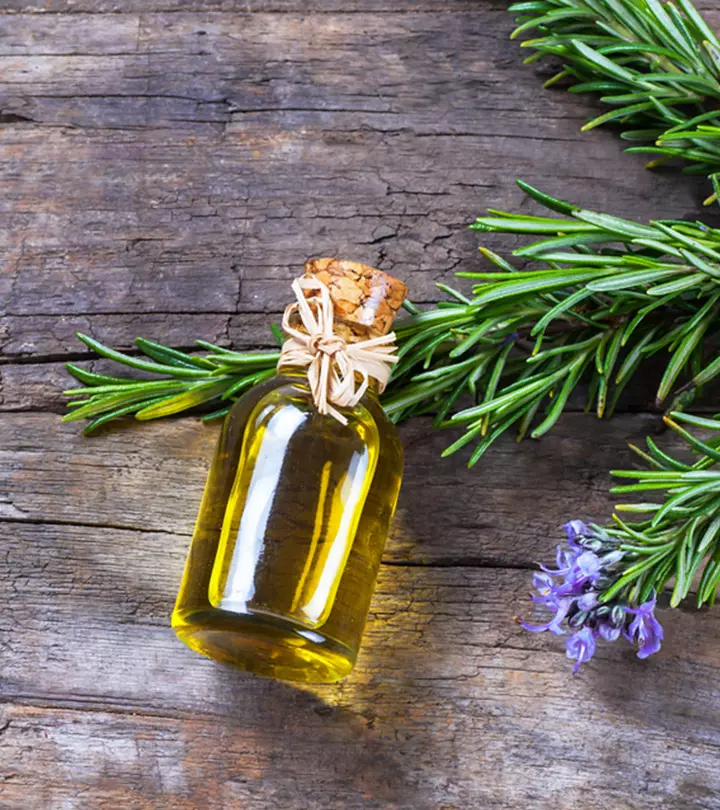
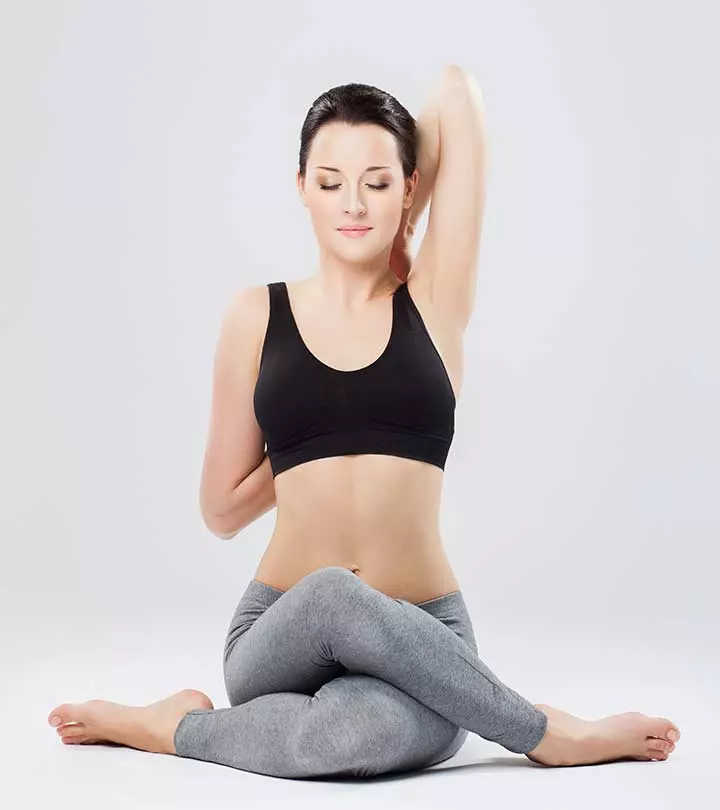
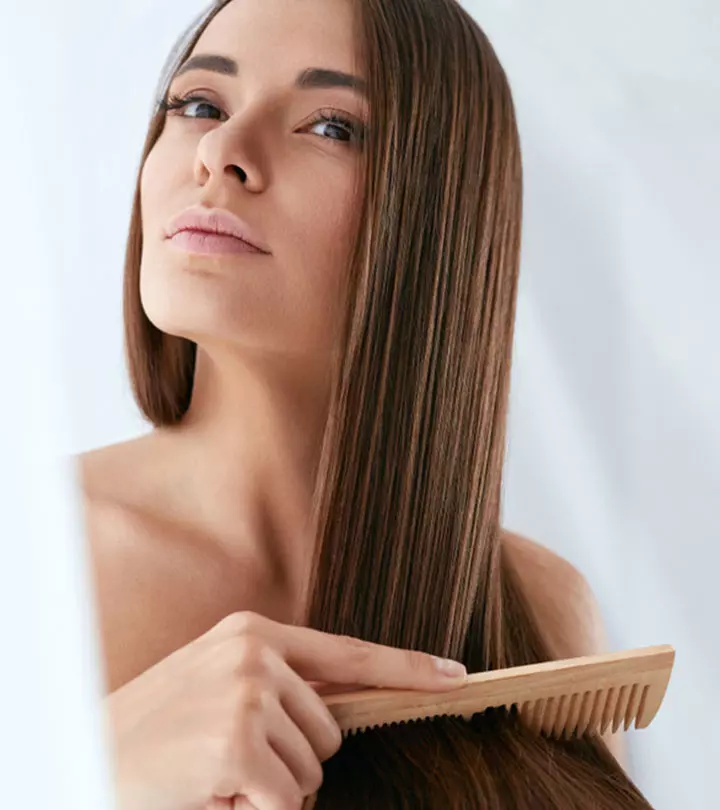
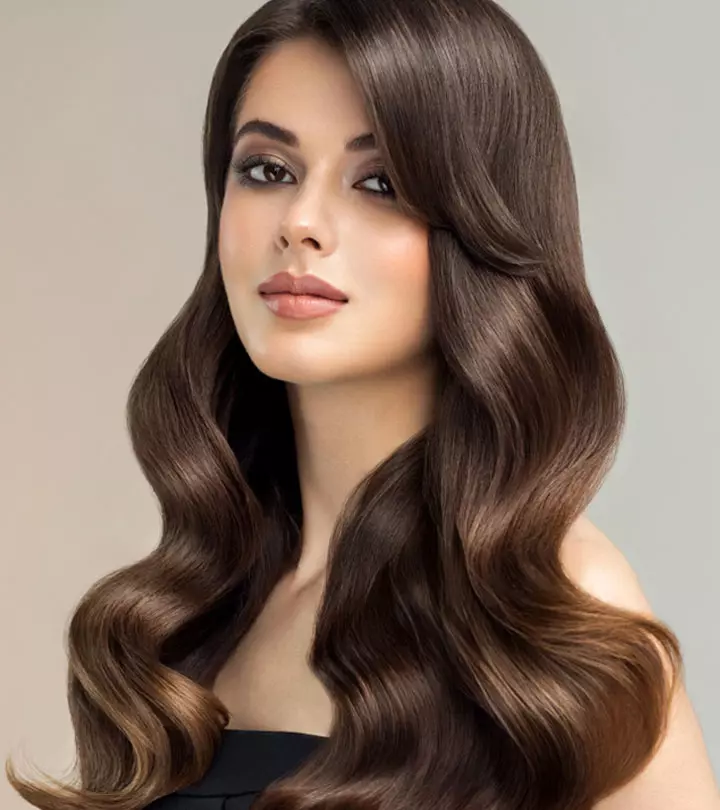
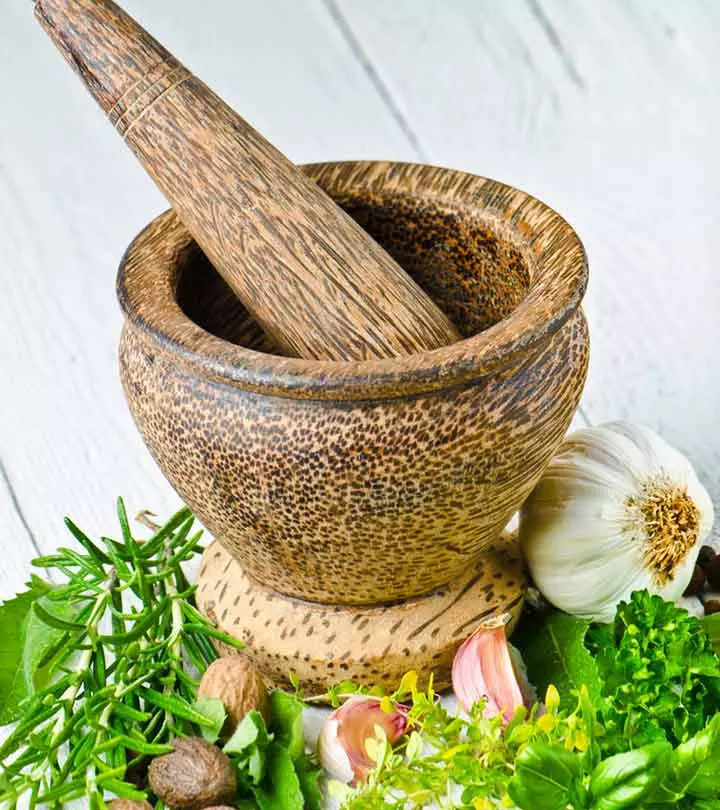
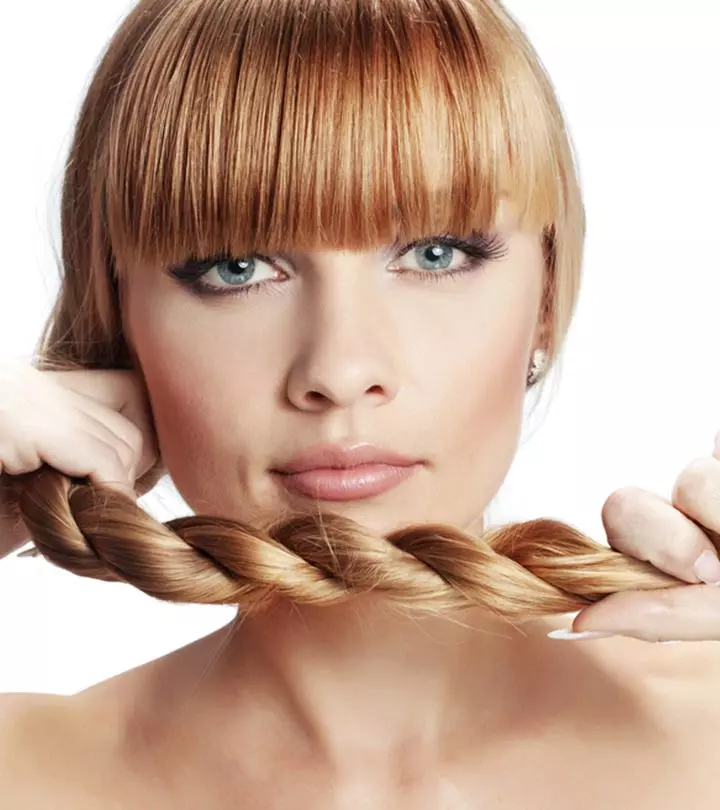


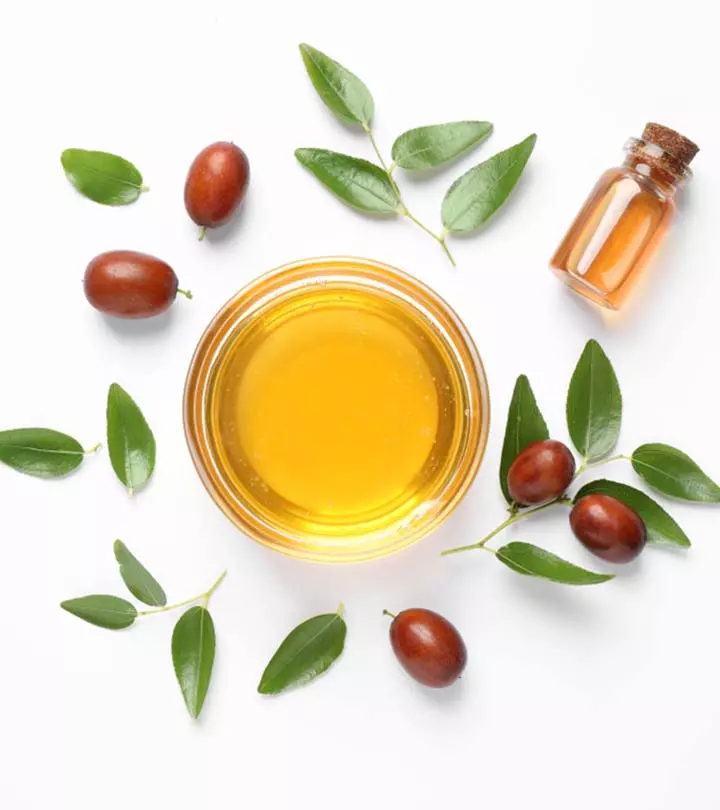
Community Experiences
Join the conversation and become a part of our empowering community! Share your stories, experiences, and insights to connect with other beauty, lifestyle, and health enthusiasts.